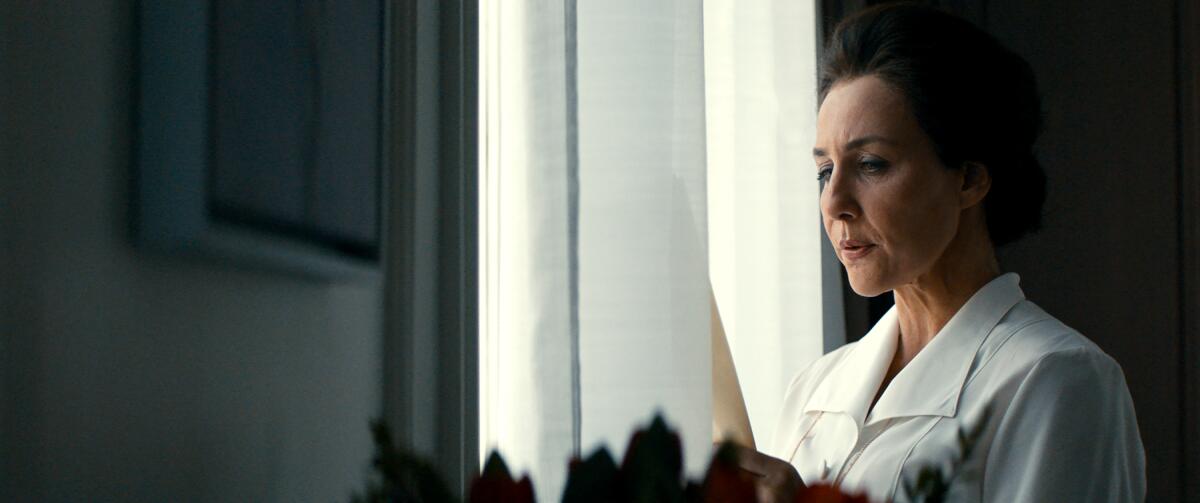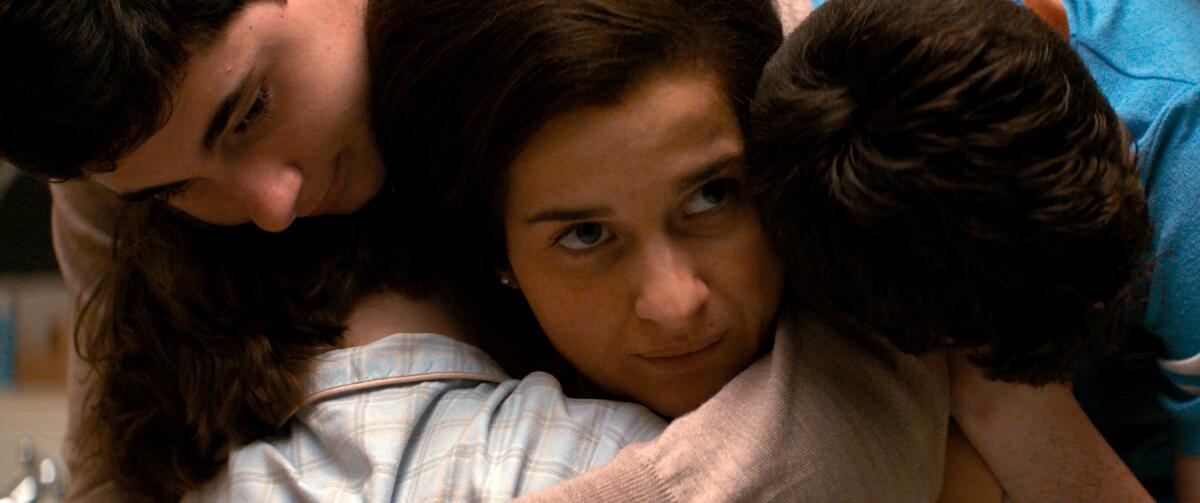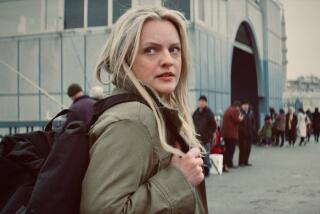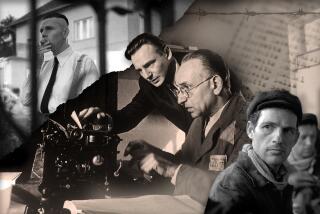Review: If you couldn’t guess, ‘Simone: Woman of the Century’ loses its subject in praise

- Share via
A significant life tied to momentous history is often an irresistible prospect to filmmakers, and France’s Simone Veil — the Auschwitz survivor whose consequential human-rights advocacy as a powerful public servant made her one of that country’s most admired figures — is a case in point, given understandably epic treatment by writer-director Olivier Dahan. One doesn’t title a movie “Simone: Woman of the Century” lightly.
So why does Dahan’s exhaustive biopic, nearly two-and-a-half hours long, seem light, something akin to a dramatized Wikipedia page (albeit a detailed page) rather than a deeply considered examination of the woman coursing through all that history? Because while it’s easy to align with Dahan’s admiring tone — Veil’s accomplishments personify the term “on the right side of history” — the film’s chaotic structure and panting sensibility leaves Veil feeling more like the star of a fast-moving timeline than someone we get to know.
You can’t blame Dahan, whose third great lady biopic this is, after “La Vie En Rose” (Edith Piaf) and “Grace of Monaco” (Grace Kelly), for cramming in as much as he could. When someone has outlasted the Holocaust, spearheaded prison reform, advanced a woman’s right to abortion, and become the first elected president of the European Parliament, the impulse is to honor everything and leave no milestone unturned. The breadth of Dahan’s narrative net has him even splitting his subject into two lead performances: the energetic Rebecca Marder handling wartime adolescence through early adulthood; and the statelier Elsa Zylberstein taking up the woman who became a feminist icon, beloved political figure, and grandmother recalling her life for a memoir.
There’s a lot to recall. Raised in a secular Jewish family, whip-smart Simone Jacob idolized the righteous progressive spirit in her mom (Élodie Bouchez), who, along with her father and brother, died in the Holocaust. Liberated with her sister Milou (Judith Chemla) from the camps, she marries ambitious civil servant Antoine Veil (Mathieu Spinosi, then, later in the movie, Olivier Gourmet) and has kids but wants more from life. She studies law, passes a notoriously difficult exam to become the rare female magistrate, then Health minister. Over her years in government, she fights for female prisoners, detained Algerians, better treatment for children, AIDS patients, addicts and prostitutes, and as intolerance rears its head again, a more humane Europe.

Invariably, the rush of events dilutes understanding the personality. Making sense of Dahan’s framing devices — I counted three — and achronological back-and-forth becomes a homework assignment. The movie starts big and midlife with the contentious ‘70s abortion fight, but reduces that episode to a screechy montage of attacking politicians, our grasp of Veil’s place in the maelstrom left wanting. Childhood bliss curiously skips to postwar ambition, at which point every scene feels like a variation on: You’re a woman, you can’t do that. Oh, yeah? Watch me.
Toward the end is when Dahan reaches back to the Holocaust, but Veil’s experience in the death camps is now a melodramatic climax, queasy in none of the ways Dahan intended. Rather, the moments when Zylberstein’s older Veil is spurred to remember that time — in a glance, an interview, or as subtext in a fiercely delivered line about something else entirely — carry far more impact than tragedy as an elaborately staged showpiece.
Dahan has cast the movie well, including small roles for Philippe Torreton and Sylvie Testud, but his preference for short, punchy scenes and declamatory lines does his actors no favors. Ultimately, the restless approach, ever-roaming camera, and operatic flourishes (including an overworked score) create a skimming effect, when we hunger for a fuller portrait of the scarred, steely soul driven to alleviate suffering and counter injustice, against all odds.
One can still come away from “Simone: Woman of the Century” full of awe and respect for an incredible life. But in terms of impact, we get more superficial “Century” than “Simone.”
'Simone: Woman of the Century'
Not rated
In French with English subtitles
Running time: 2 hours, 20 minutes
Playing: Laemmle Royal, West Los Angeles
More to Read
Only good movies
Get the Indie Focus newsletter, Mark Olsen's weekly guide to the world of cinema.
You may occasionally receive promotional content from the Los Angeles Times.










